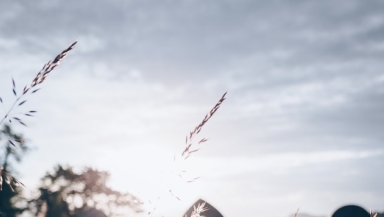
Most Covid restrictions seem set to be lifted in the UK later this month. It's welcome news, but not everyone is enthusiastic about the prospect.
Some people have said they will still be wary of mixing freely with others even if the politicians and health professionals say it's safe.
If you're one of those looking for a quiet oasis away from the increasing bustle and busyness of post-restriction life, there's an often-overlooked place where nature, heritage and the life histories of hundreds of local people are on peaceful display.
Take a walk in your local cemetery!
The chances are it's a place where nature abounds, where socially-distant peace can be found, you can get exercise and meditate on the deeper issues of life.
It's true that graveyards seldom feature in most people's favourite places to visit. Many find them morbid, reminding them of their own mortality.
Or they can prompt memories of loved ones no longer with us, and the sadness overcomes the happy memories of the life shared together. Others simply rush past cemeteries or graveyards, without even noticing that they are there.
But walk among the gravestones, read the inscriptions and you find the stories of people's lives.
Samuel Ryder, the Hertfordshire seed merchant who devised the United States v Europe Ryder Cup golf tournament, is buried in the cemetery opposite the church where I minister. When I visited recently, someone had left golf balls on his grave.
In the same cemetery, there are more than 200 plain white graves of local and Commonwealth service people who died during the two World Wars, and a memorial to the many local soldiers who died in the First World War.
To wander around any cemetery or graveyard is to enter into the lives of generations of families. To see the grave of the still-born baby close to the child who died in infancy, both near the grandmother who died in her nineties. The husband and wife who died within months of each other are alongside the wife who outlived her spouse by decades.
I'm always struck by how people are described. Most are defined by their family relationships – beloved grandfather, grandmother, father, mother, wife, husband, son or daughter.
Others are described by their roles in life – actress, writer, golf professional or for the war graves, by their ranks. How long, I wonder, had the young men and women been in uniform before meeting their deaths – and being remembered ever after as soldiers? It may have been just a few months.
What, I find myself asking, would I like to have written on my gravestone? How would each of us like to be remembered? How can long lives be summed up in the few words you can fit on a gravestone?
And what is it that we are doing in life that will be of lasting value? Cemeteries are places that can make you consider your own life and think about what is important in it.
Many Christian funerals begin with the words of Jesus Christ, 'I am the resurrection and the life. Those who believe in me, even though they die, will live, and everyone who lives and believes in me will never die.'
It is a promise I hold to as I walk the paths around the graves.
Rev Peter Crumpler is a Church of England priest in St Albans, Hertfordshire, UK.













